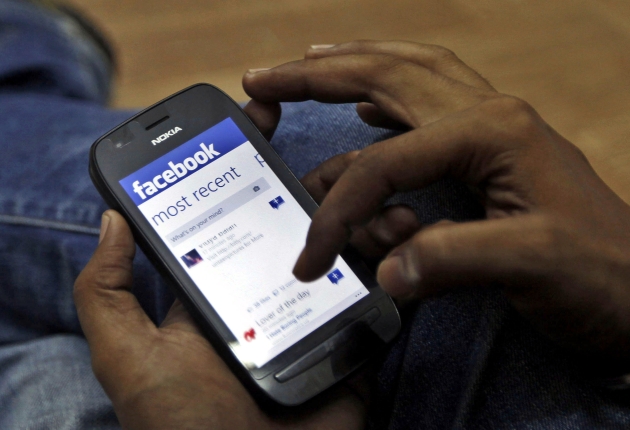- Home
- Social networking
- Social networking News
- 'Facebook depression' fears unfounded: US study
'Facebook depression' fears unfounded: US study

The University of Wisconsin School study found no basis to support the theory outlined in a study last year by the American Academy of Pediatrics that suggested exposure to Facebook could lead to depression among adolescents.
"Our study is the first to present scientific evidence on the suggested link between social-media use and risk of depression," said Lauren Jelenchick, a researcher at the UW School of Medicine and Public Health.
"The findings have important implications for clinicians who may prematurely alarm parents about social-media use and depression risks."
Jelenchick and professor Megan Moreno surveyed 190 students at the university between the ages of 18 and 23. The survey participants were on Facebook for over half of the total time online.
They found no significant links between social media use and the probability of depression.
The results were published Monday in the Journal of Adolescent Health.
"Our findings are similar to those from studies of other communication applications, such as e-mail and chat, which also found no association with depression," the researchers wrote.
Still, they noted that "a single study cannot prove or disprove an association" and cautioned that the latest study "is limited by the sample's ethnic homogeneity, our focus on older adolescents in a single university setting, and a small sample size."
Moreno, a pediatrician who studies social media use among children and adolescents, said parents don't have to be overly concerned if their child's behavior and mood have not changed, and if they have friends and their school work is consistent.
"While the amount of time on Facebook is not associated with depression, we encourage parents to be active role models and teachers on safe and balanced media use for their children," said Moreno.
For the latest tech news and reviews, follow Gadgets 360 on X, Facebook, WhatsApp, Threads and Google News. For the latest videos on gadgets and tech, subscribe to our YouTube channel. If you want to know everything about top influencers, follow our in-house Who'sThat360 on Instagram and YouTube.
Related Stories
- Amazon Great Indian Festival 2024
- Big Billion Days 2024
- Apple Vision Pro
- Oneplus 12
- iPhone 14
- Apple iPhone 15
- OnePlus Nord CE 3 Lite 5G
- iPhone 13
- Xiaomi 14 Pro
- Oppo Find N3
- Tecno Spark Go (2023)
- Realme V30
- Best Phones Under 25000
- Samsung Galaxy S24 Series
- Cryptocurrency
- iQoo 12
- Samsung Galaxy S24 Ultra
- Giottus
- Samsung Galaxy Z Flip 5
- Apple 'Scary Fast'
- Housefull 5
- GoPro Hero 12 Black Review
- Invincible Season 2
- JioGlass
- HD Ready TV
- Laptop Under 50000
- Smartwatch Under 10000
- Latest Mobile Phones
- Compare Phones
- Vivo Y300 5G
- Red Magic 10 Pro+
- Red Magic 10 Pro
- Asus ROG Phone 9
- Asus ROG Phone 9 Pro
- ZTE Blade V70
- Vivo Y18t
- Honor X9c
- Asus Zenbook S 14
- MacBook Pro 16-inch (M4 Max, 2024)
- Huawei MatePad 11.5
- Acer Iconia Tab 10.36 (iM10-22)
- Redmi Band 3
- Xiaomi Smart Band 9 Pro
- Sony 65 Inches Ultra HD (4K) LED Smart TV (KD-65X74L)
- TCL 55 Inches Ultra HD (4K) LED Smart TV (55C61B)
- Sony PlayStation 5 Pro
- Sony PlayStation 5 Slim Digital Edition
- Carrier 2.0 Ton 5 Star Inverter Split AC (24K EMPERIA LXI INV)
- Lloyd 2 Ton 3 Star Inverter Split AC (GLS24I36WGVR)

















